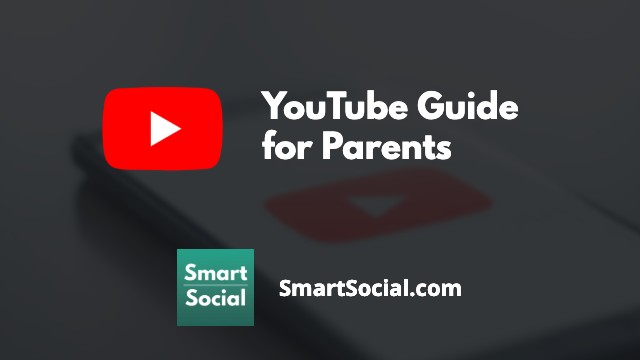WhatsApp: Safety Guide for Parents & Students
Green Zone App
(Click here to learn more)
Dangerous Social media challenge
(Click here to learn more)
Red Zone App
(Click here to learn more)
Gray Zone App
(Click here to learn more)
WhatsApp is one of the most used messaging apps in the world. As an alternative to SMS text messages, WhatsApp is easy to use and offers several free options for people around the world to connect, without using a data plan.
This guide to WhatsApp will help parents and educators understand the popular app and help students who use it to stay safe.
Parent video
What is WhatsApp?

- It’s a free messaging app for smartphones and desktops
- Users can send and receive messages, calls, photos, videos, documents, and voice messages
- The app promises end-to-end encryption, so only you and the person you're communicating with can read or listen to messages
- The app has a built-in camera
- Up to 256 people can join a WhatsApp group chat (Source: WhatsApp)
Why do students like WhatsApp?

- There are no message limits or data fees to:
- Make video calls
- Send text messages
- Send videos, photos, and audio messages
- Users can send “disappearing” messages, like on Snapchat, through the Status feature
- Message logs and call logs from WhatsApp will not show up on a phone bill
- It’s easy to organize group chats among school clubs, sports teams, groups of friends and relatives, etc. no matter what type of device others are using (Apple vs. Android)
- The app makes it easy to share messages, photos, and videos
- WhatsApp has a huge sticker library, which lets students share their thoughts and expressions without typing a word
Where is WhatsApp available?
- Apple App Store Rating: 12+
- Google Play Rating: E (For Everyone)
- Also accessible through WhatsApp Web and WhatsApp Desktop
- App Developer Website: WhatsApp (Based in USA, Owned by Meta)
- Terms of Service
- Privacy Policy
WhatsApp dangers in the news

‘Sexual predators often prey on the terror children experience when they are coerced and manipulated into creating explicit photos and videos,’ stated FBI Assistant Director-in-Charge ‘We allege [he]threatened to expose the images his victim created if the child didn't continue to send him more. Children often fear going to an adult to report what's happened because they're humiliated, and they believe the threats.’
United States Department of Justice

They may be meeting strangers or people they haven’t met before on different websites or games, and then they go to WhatsApp because they think it’s a little more private.

Apps like WhatsApp and various operating systems are rife with vulnerabilities that allow hackers to inject spyware, intercept messages, alter attachments and crash the app for all members of a group chat, cybersecurity researchers have discovered over the past year.
Why should parents care?
- It is challenging for parents to keep track of WhatsApp chats and who their student is talking to since messages can easily be deleted, set to disappearing, and don’t show up on phone bills
- WhatsApp users can require a two-step verification system, making it even harder for parents to view students’ messages
- The app is for users ages 13+, but anyone can create an account without age verification
- Since group chats can have so many participants, these issues could arise:
- Cyberbullying
- Private photos and conversations can easily be downloaded or screenshot and shared with others
- There is no filter for adult content in chats
- A “friend of a friend” can easily get added to a group chat, so your student could be chatting with strangers
- The app offers location sharing that gives other users real-time data about their physical location
- Predators are known to connect with students on other social media apps or online games and convince them to switch to WhatsApp for more “privacy”
- There are no parental controls on the app and students can change recommended Privacy and Security settings on their own
What can parents do to keep kids safe on WhatsApp?

- Download and try WhatsApp for yourself. Ask your student to show you how to add contacts and how to start a chat with them
- Discuss the dangers of sharing your location on apps and check frequently that your student has the location-sharing feature turned off
- Ensure you know your student’s WhatsApp PIN
- Talk with your student about the type of information that’s appropriate to share on WhatsApp
- Encourage your student not to accept group chat requests from strangers
- Go to Account--> Privacy--> Groups
- Select one of three options: Everyone, My Contacts, Nobody
- Our recommendations for WhatsApp’s Privacy settings:
- Last Seen: Nobody
- Profile Photo: My Contacts
- About: Nobody
- Groups (Who can add me to groups): My Contacts
- Status: My Contacts
- Live Location: None
- Default Message Timer: Off
Conclusion
Students may be searching for the right balance of “privacy” in their lives at this age of exploration. WhatsApp's promise of privacy with end-to-end encryption might make students think this app is safer than other social media or messaging apps.
If your student uses the app, it’s a good idea to talk with them about good digital citizenship and the dangers of communicating with strangers online. Also, remind them they can always come to you, or another trusted adult if they ever feel uncomfortable with any situations that arise while they’re using WhatsApp.
Additional Resources
Read more about another popular messaging app, GroupMe
Protect your family and enter for a chance to win cool prizes
Become a member or log in to learn more on this topic
Protect your family and enter for a chance to win cool prizes

., start learning from this page to earn points!*
Hello, I'm Josh, the founder of SmartSocial.com.
Don't leave this page until you fill out our feedback form that will appear after you learn from the resources...
Here are some of the latest resources at SmartSocial.com
Become a Very Informed Parent (VIP) to get our social media suggestions in your email every Tuesday & Thursday.



Hello, I'm Josh, the founder of SmartSocial.com. Protect your family by taking my 1 minute quiz
This quiz will help you understand how safe your family is


Schools & Districts: Partner with us to protect your community online
Our remote presentations (and website) teach over a million parents and students each year how to be safe so they can shine online. We teach students how their accounts can be used to create a portfolio of positive accomplishments that impress colleges and employers.


Join Our Smart Social Podcast
each week on iTunes
With over 500 episodes, Josh Ochs interviews psychologists, therapists, counselors, teachers, and parents while showing you how to navigate social media to someday shine online.
Listen on:



.jpg)

.jpg)

_.jpg)
.png)